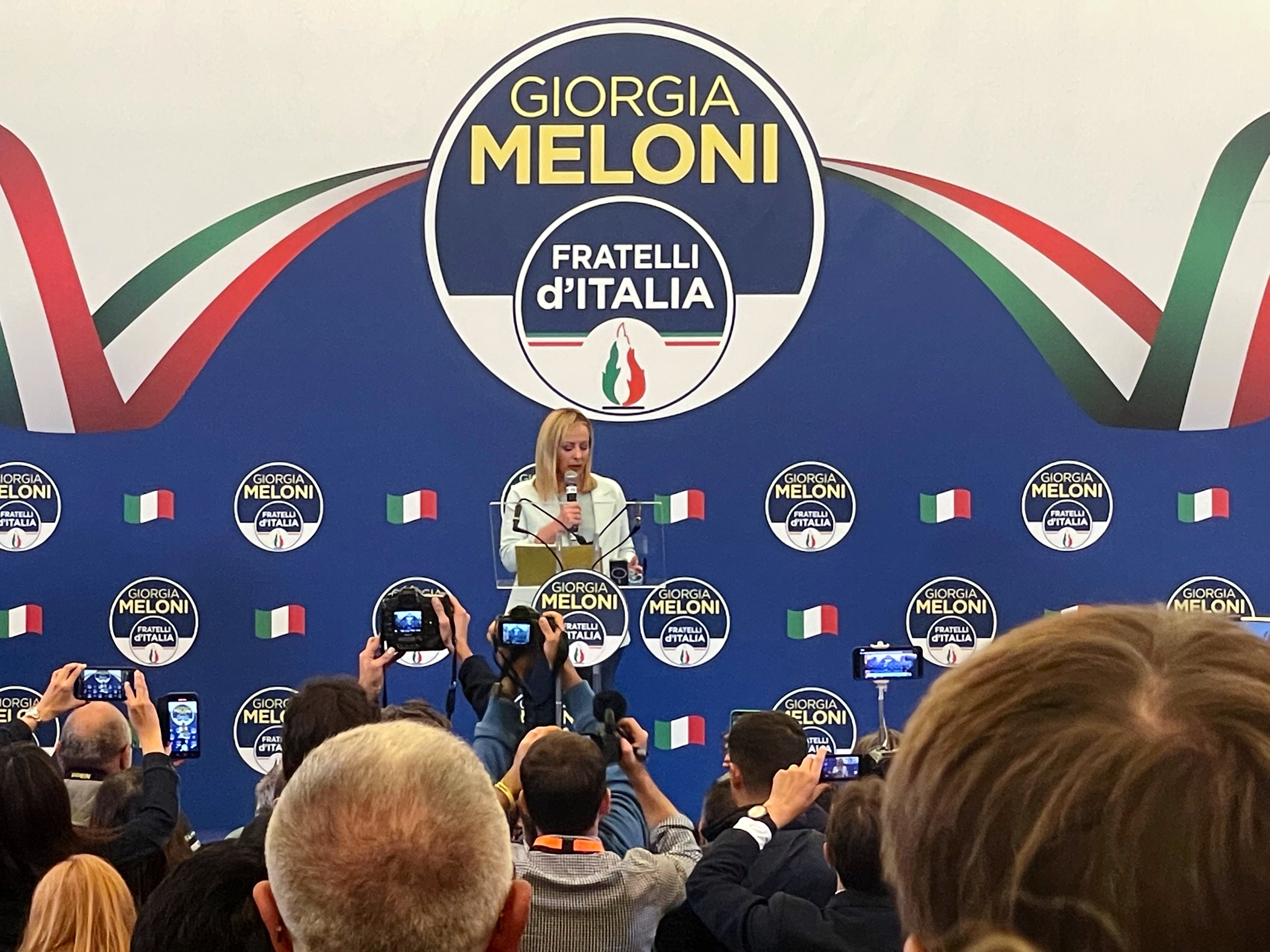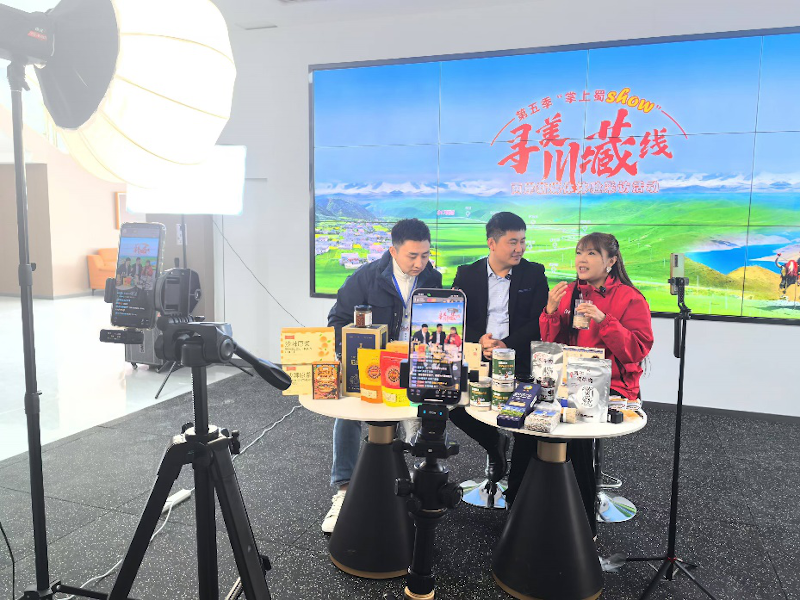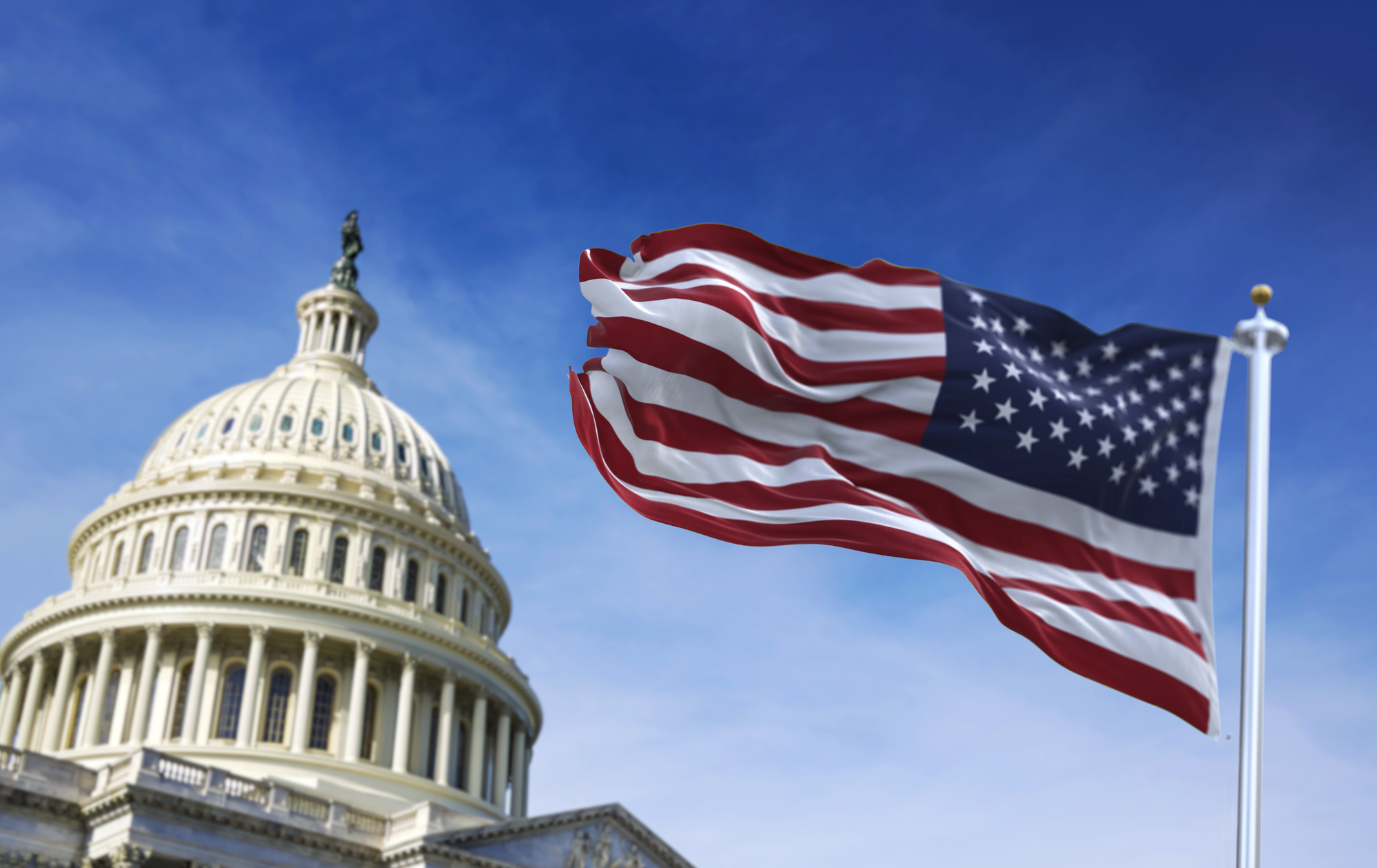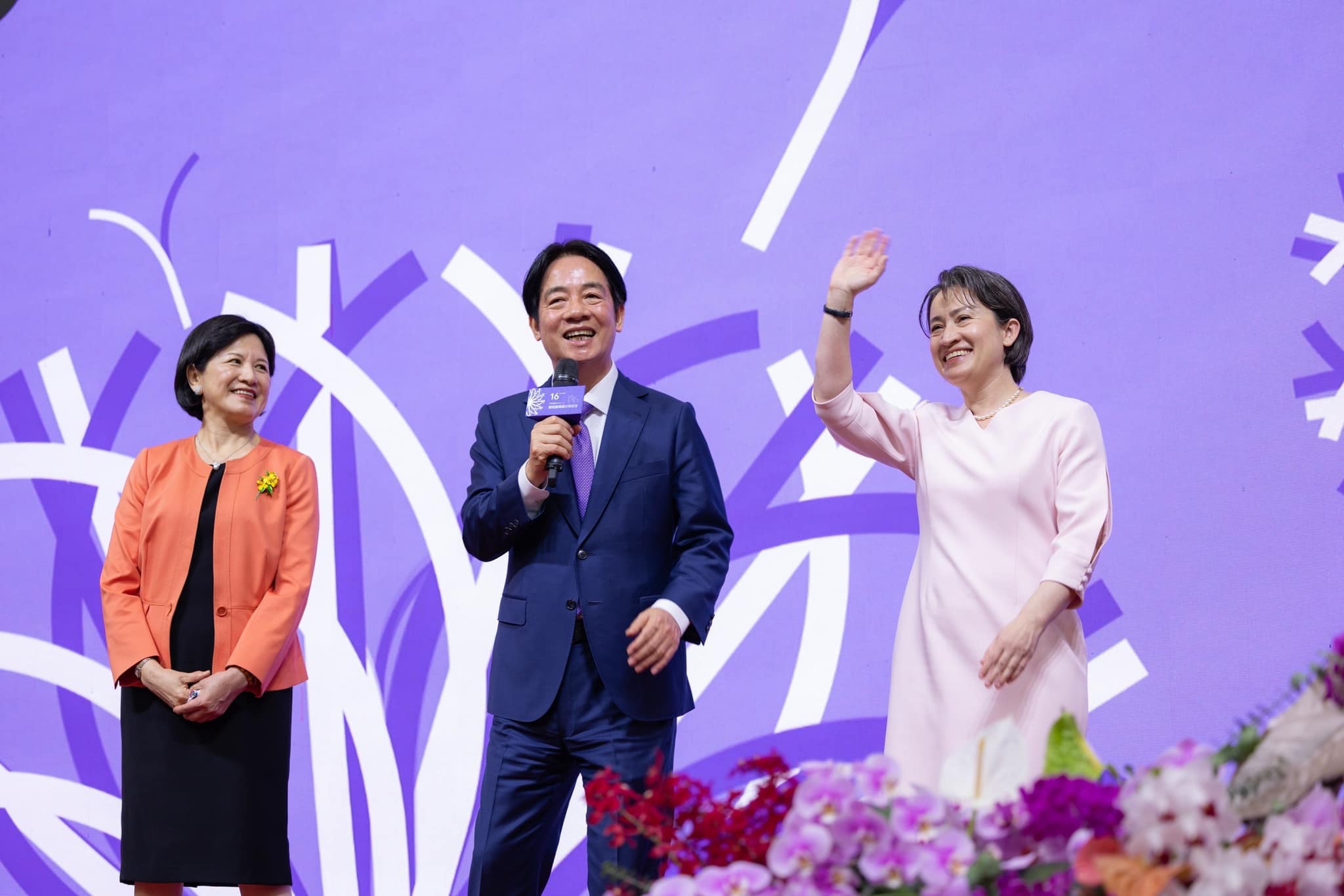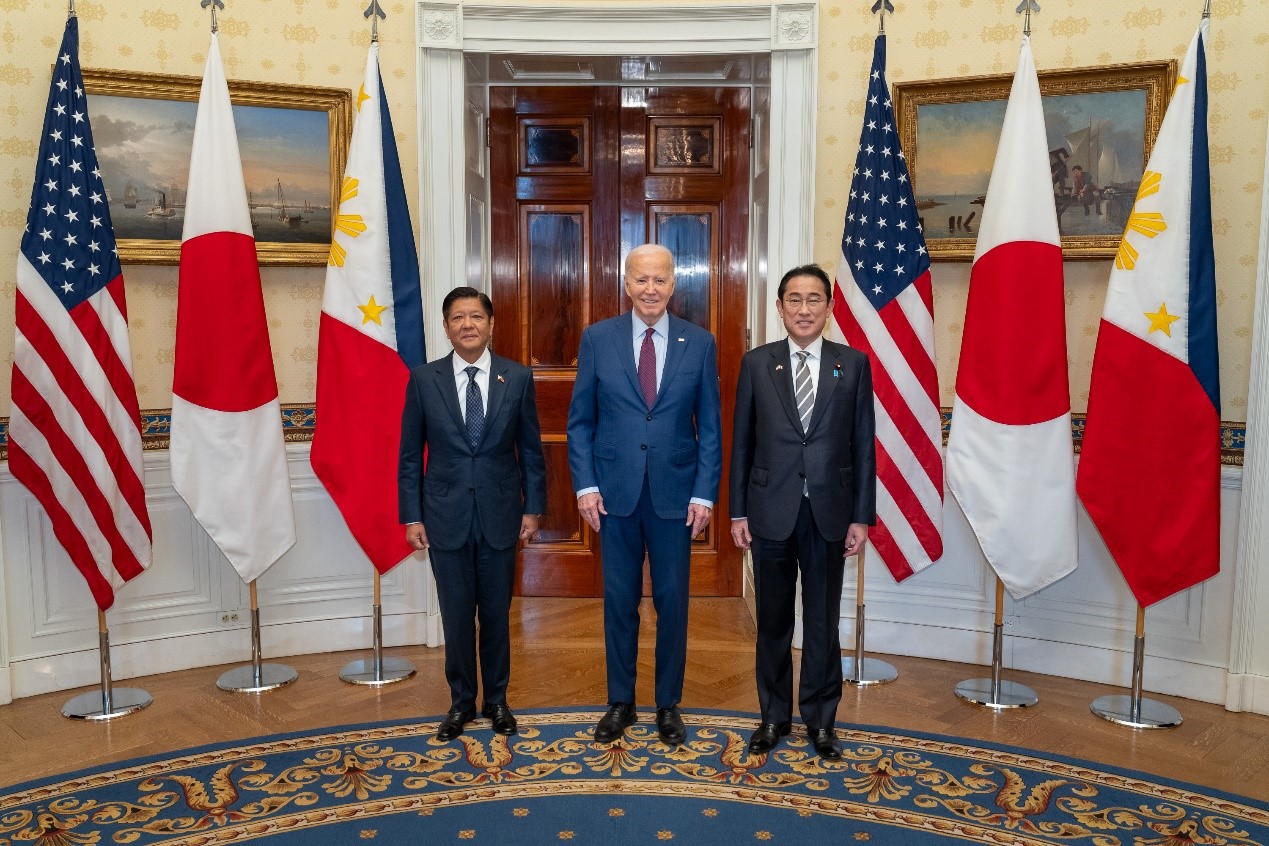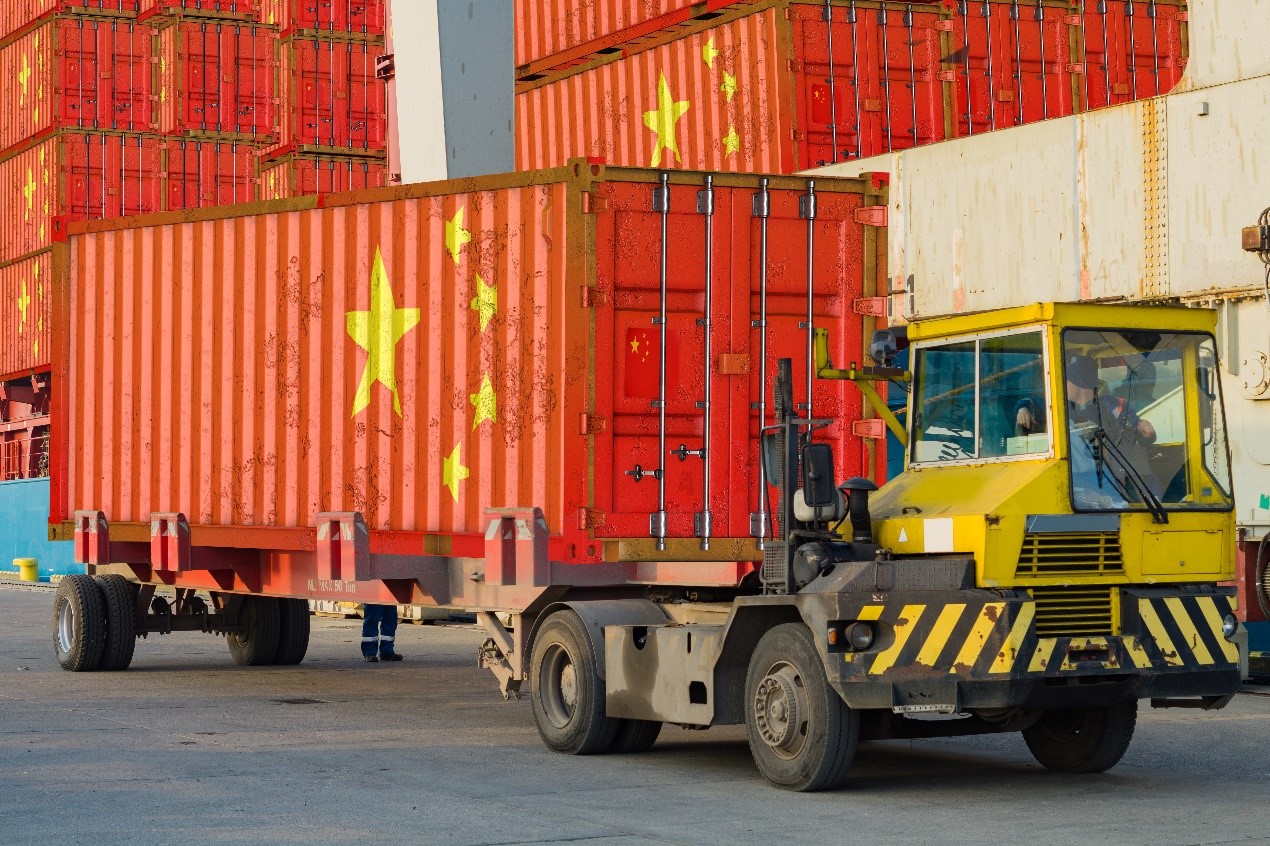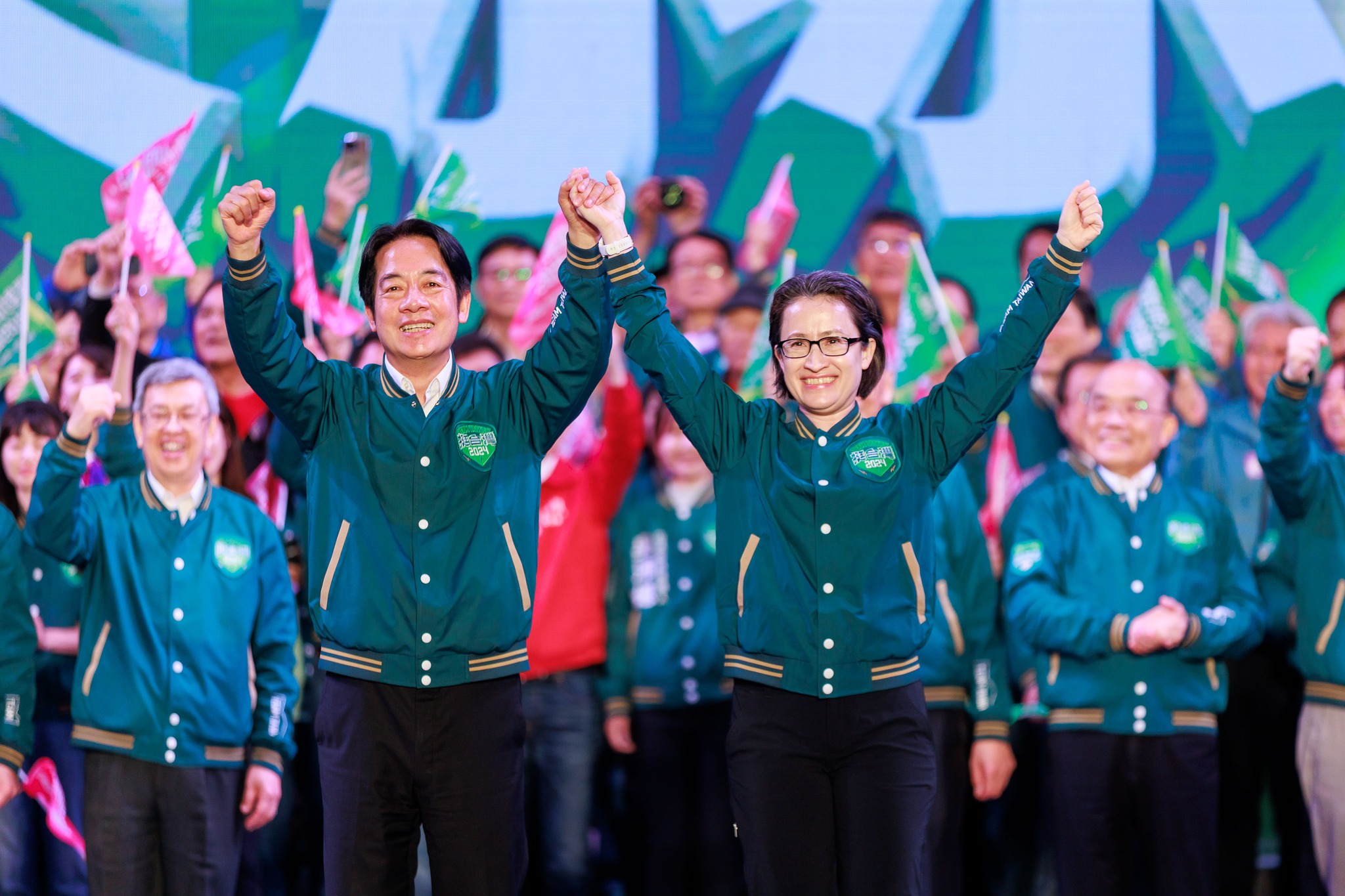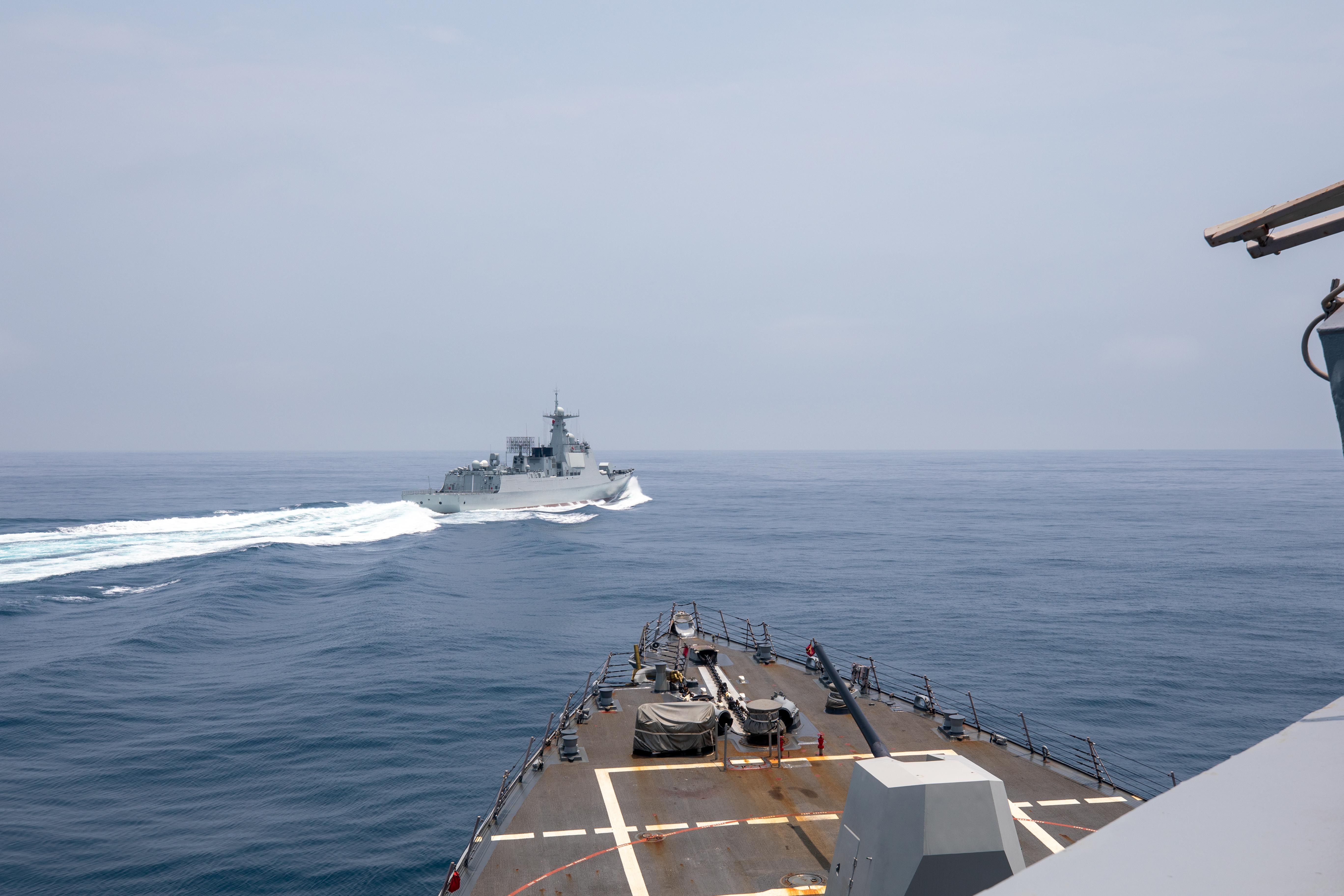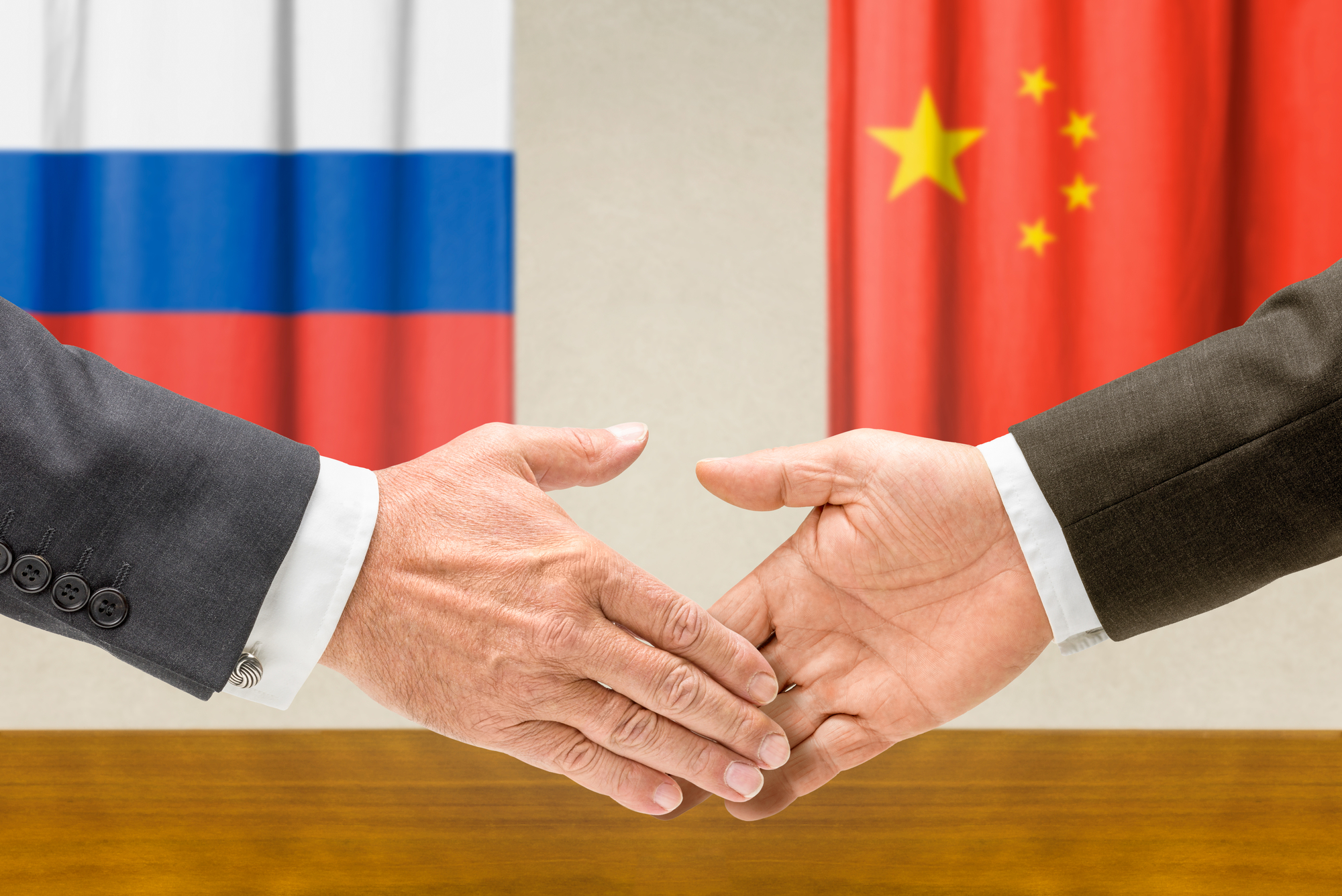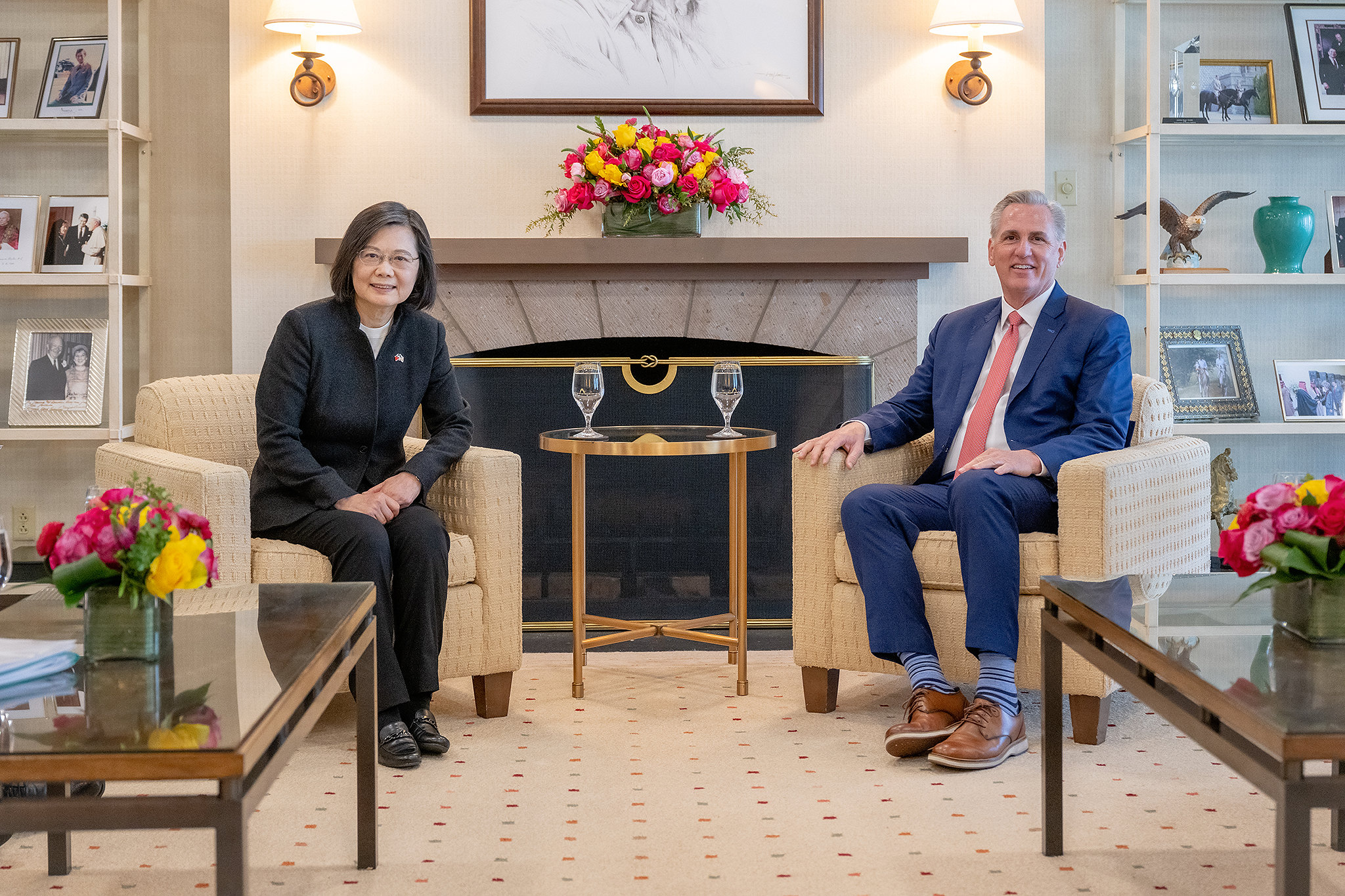The Italian Elections: Impact on Italy’s Relations with China and Taiwan
On September 23, just two days before the electoral victory, Meloni gave a written interview to Taiwan’s Central News Agency (CNA). In the CNA interview, Meloni condemned China’s military threats toward Taiwan and foreshadowed the adoption of EU sanctions in case of a Chinese invasion.
Picture source: Giorgia Meloni, September 26, 2022, https://twitter.com/GiorgiaMeloni/status/1574196972441194498/photo/1
The Italian Elections: Impact on Italy’s Relations with China and Taiwan
Prospects & Perspectives No. 59 October 17, 2022
By Aurelio Insisa
On September 25, a center-right coalition consisting of two right-wing populist parties, Fratelli d’Italia (Brothers of Italy, FdI) and Lega (the League), Silvio Berlusconi’s Forza Italia and other Lilliputian centrist parties, won the Italian legislative elections. FdI, which traces its heritage back to the post-fascist far-right, was the most voted-for party, electing 119 MPs and 65 senators. Giorgia Meloni, leader of the party since 2014, is expected to be appointed by President Sergio Mattarella as the new prime minister by late October. Meloni would be the first female and first right-wing prime minister in the history of the republic.
On September 23, just two days before the electoral victory, Meloni gave a written interview to Taiwan’s Central News Agency (CNA). This followed a meeting Meloni held on July 22, in the early stages of the electoral campaign, with Lee Sing-ying, the head of the Taipei Representative Office in Italy. In the CNA interview, Meloni condemned China’s military threats toward Taiwan and foreshadowed the adoption of EU sanctions in case of a Chinese invasion. She also highlighted a series of areas in which relations between Italy and Taiwan could be strengthened under the new government: cultural exchanges, tourism, public health, scientific research, and the semiconductor industry. Furthermore, Meloni did not shy away from condemning China’s geo-economic “penetration” in Europe and its influence operations in the Italian information environment, suggesting that a new government under her leadership may not agree to extend the Belt and Road Initiative (BRI) memorandum of understanding (MoU) signed by the Giuseppe Conte government with Beijing in 2019.
The reaction from China was relatively cautious. A statement from the embassy in Rome issued immediately after the release of the interview avoided explicitly mentioning Meloni, inviting all parties instead “to be aware of the extreme sensitivity of the Taiwan issue,” to respect the “One China principle,” [editor’s note: Italy has a “one China” policy] and not to send misleading signals to “Taiwan independence forces.” After FdI’s victory, Chinese external propaganda outlets were, however, slightly more assertive, portraying the electoral result as yet another example of the populist malaise gripping Europe. They warned the new government not to terminate the BRI MoU and not to follow “the American baton.”
External and domestic drivers
Meloni’s statements over China and Taiwan constitute a rupture in Italian politics, even though the political debate has unsurprisingly remained focused on the domestic and regional issues caused by the war in Ukraine. Mainstream figures across the entire Italian political spectrum have been careful to avoid crossing China’s “red lines” over Taiwan since the normalization of relations between Rome and Beijing in 1970. Bilateral relations between the two sides were in fact marked, at least at a surface level, by a certain bonhomie, as the economic ties between the two sides had greatly developed in the two decades that preceded the COVID-19 pandemic.
Both international and domestic motivations were arguably at play in Meloni’s decision to vocally support Taiwan and criticize Beijing, with the former more relevant and more pressing than the latter. In both cases, support for Taiwan emerged from a strategic and ideational opposition to China, at least at the rhetorical level. At an international level, her statements were likely aimed at bolstering her credentials with the U.S. Republican Party. Since the MAGA takeover of the GOP under Donald Trump, Meloni and her party have invested profusely in establishing ties with the American right and its think tanks. Meloni addressed the yearly CPAC in February 2022, and – tellingly – her electoral victory was also saluted by former secretary of state Mike Pompeo, the most fervid champion of Taiwan in American politics and one of the most hawkish over China.
At a domestic level, her statements over Taiwan can be understood first and foremost as China-bashing. To her core constituency they reflect a visceral form of anti-communism that has always been part of the Italian right. Here, it is worth noticing that Meloni herself had already issued public statements critical of Beijing as early as in 2008, on the occasion of the repression of the unrest in Tibet and the lead-up to the Summer Olympics. But her interview likely resonated even more broadly among swing voters who consider Beijing’s rise as a decisive factor in the decline of Italian manufacturing and of the country’s weakened position in the global economy.
What to expect from a Meloni government
Meloni’s endorsement of Taiwan and criticism of China can thus be understood as an exercise in political marketing conducted with one eye on American political allies and the other on Italian voters. A key question is whether a Meloni government will bring a qualitative shift in the Italy-Taiwan relation or will use rising cross-Strait tensions simply to build a hawkish political brand – Italy’s room for maneuver is, after all, limited by the EU and its economic fragility. One realistic step that a Meloni government could take to deepen relations with Taipei at a relatively low cost vis-à-vis Beijing is to join the U.S., Japan, Australia and a slew of European countries in the Global Cooperation and Training Framework (GCTF). Originally launched as a Taiwan-U.S. forum for professional training related to non-traditional security issues in 2015, the GCTF has profoundly changed under the Tsai administration. With the support of the Trump and Biden administrations, the GCTF has turned into a platform for Taiwan’s diplomatic engagement with foreign partners under a techno-democratic agenda, which may constitute the ideal environment to develop cooperation in the same areas Meloni mentioned in the CNA interview.
At this stage, it is difficult to imagine other major developments in relations between Rome and Taipei barring catastrophic developments such as a Chinese military invasion of the island-nation. Nonetheless, it is worth highlighting two potential dynamics that may affect Italy-Taiwan and, consequently, Sino-Italian relations. The first dynamic regards a possible “alignment of hawks” with the Truss cabinet in London that would further escalate criticism of Beijing and strengthen rhetorical and symbolical support for Taiwan, especially as Meloni will try to maintain a degree of autonomy in foreign policy vis-à-vis Brussels, Paris, and Berlin. The major obstacle here is the extreme political and economic fragility that both administrations will face in the coming months.
The second dynamic concerns the TSMC “sweepstakes.” Even though the Taiwanese public company dominating the semiconductor industry has recently denied plans to establish new chip-making plants within the EU, the rumors continue to persist. Given that Italy and Germany have long been considered the two main candidates to receive such investments, intra-EU competition for industrial re-shoring may activate Meloni’s sovereignist reflexes and push her to emphasize her pro-Taiwan credentials vis-à-vis a wobbling Scholz administration – even if such a position would probably have no actual influence on the TSMC’s decision-making process.
Amid this uncertainty, it is at least clear that a Meloni government will not reverse the re-evaluation of Sino-Italian relations occurred under the previous cabinet led by Mario Draghi.
(Dr. Aurelio Insisa is Adjunct Assistant Professor at Department of History, The University of Hong Kong.)


